Interview with Dr. Vandana Shiva on conservation of biodiversity, climate change and it’s impact in women lives

March 30, Kathmandu: Nepal has recently conducted a South Asian regional women’s conference to address the violence against diverse women and girls. Various Women Human rights activist from across the South Asia and America attended the conference. The conference concluded with an agreement to hold another global conference on violence against diverse women and girls. The speakers during the conference also urged all the South Asian nations to champion and adopt a legally binding global framework to address the violation of women’s human rights.
Dr. Vandana Shiva, prolific Indian Scholar, environmentalist, and Eco feminist was also here in Nepal to attend the conference. Here is the interview with Dr. Vandana Shiva by Radio Nepal’s Dela Prasai.
All throughout your life, you have been fighting for the conservation of biodiversity. So, why biodiversity is important for sustainability?
Biodiversity is life, because whether you take this life in the soil, it’s made by the soil’s biodiversity, the microorganisms, and the bacteria. If you look at plants, it’s biodiversity of plants, both the cultivated and the uncultivated. If you look at a forest, it’s the biodiversity in a forest, a plantation is not a forest. It doesn’t do anything for you. So, no matter what you look at biodiversity of the planet it’s not just the fabric, which weaves the life, but is the basis of the livelihoods of women’s economies. Most people don’t realize biodiversity is the reason we regulate the climate. When we destroy biodiversity, we destroy the climate and we make the planet and women more vulnerable to climate change.

So, if there is any ecological crisis, the one that has to suffer is woman. So how can we make women more aware about the climate change’s impact and how can they take forefront to mitigate the adverse effect of climate change?
I have worked for five decades with women on the grassroots. It emerged before the climate problem began with Chipko where deforestation was the big challenge, but it’s not that the women on the grassroots don’t understand climate change. It’s not that they don’t understand the implications for their lives. They’re the ones who bear the biggest cost. It’s just that their voices aren’t carried to where decisions are made and decisions get made by those who have caused pollution, which has led to climate change, who now want to make more money out of climate change. So, my suggestion would be listen to the women, amplify their voices and do not allow capitalist patriarchy to takeover climate solutions.
When South Asia became industrialized, male force started going to industry and patriarchy made agriculture as a, a substandard occupation. However, in the South Asian context, the major livelihood is still the agriculture and by considering it a substandard occupation we cannot think about the development of the society. So how development of sustainable agriculture is impacted by patriarchy and what can be done for the women’s empowerment in the agriculture sector?
I spent 45 years now showing how an agriculture that is earth friendly and women led is not just a substandard activity, but is the most important vocation for everyone. It’s just that women’s work in agriculture is not recognized and respected, but that doesn’t make the work less important. Food is the first human need. How we grow food decides whether we’ll have climate change. 50% of the greenhouse gases come from an industrialized globalized system, 75% soil and water destruction comes from an industrialized system. You work with more fossil fuels, big combined harvesters, more chemical fertilizers, more herbicides, and more pesticides. All of this is a very heavy burden for the planet. Our work in Navdanya, has shown that when you base agriculture on women’s knowledge and practice, and give it the full recognition, the more biodiversity in agriculture is the more it produces. We can feed two times South Asia’s population by building a culture based on women’s knowledge and biodiversity.
Since our childhood, we have been taught that we need a green revolution to feed the world population. Why you are a critic of green revolution?
Green Revolution means it should be green. It should be working according to ecology. It should be revolutionary. Should come from the people themselves. That’s what revolutions are, something that’s about poison is not green. Something that comes from the top and is imposed is not a revolution. Why am I critical of the green revolution? Not because I decided to be critical about it. It destroys the soil, viability, water. It destroys the farmers. Also the green revolution has failed because of the monocultures of rice and wheat, rice and wheat, rice and wheat. This has devastated the soil and finished off the rivers. . And the final reason why I’m critical of the Green Revolution is I grew up in a bio diverse agriculture. I grew up in my mother’s bio- diverse farms. After research has shown bio- diversity produces more food, ecological agriculture produces more food and more nutrition in the food.
In the South Asian context, several projects for environmental protection, such as community forests have been brought in. The major agendas of these projects were also to address, the issues of indigenous farmers and women .So when we look at it from the ecological aspects, things are going great, but still many opines that these projects have not done much in reducing gender inequalities. How can we make these projects women friendly?
Well, the, way to make these projects, women friendly, is put them in the hands of women, after all who have been taking care of forest are the women who have lived with the forest. You know, it’s the Chipko women who initiated Chipko movement because they lived in the forest. They knew the forest. They knew every tree, every function. They were the ones who taught me, which species is good for conservation of water. They understood the Oak vital to ecosystems, and here they were planting pine. And I know it’s the same issue in Nepal. So we have to turn to women as the central custodians, not just as low paid workers, but as the community in charge leading their knowledge forests are the heart of biodiversity. Forest must be managed for biodiversity. Forest must be managed for water, not just number of trees planted, but the amount of springs regenerated, the amount of carbon in the soil and the humans created most importantly women’s needs from that forest. And that’s why the only way to remove the gender imbalance in these projects is correct. The gender imbalance put women at the center.
As Nepal is also the land biodiversity and more than half of the population here rely on agriculture for livelihood. So how indigenous knowledge of farmers is important to protect the bio and, develop a sustainable agriculture system?
Having, you know, grown up in an area, very similar to Nepal, I’ve learned three things. You cannot conquer the mountains. On your hill, you have to do a nonviolent gentle farming. And that’s why to put nonviolence in the way we deal with the land is very important. On these mountains if you do a monoculture, the mountains will collapse. Every slope of the mountains grow something different. Every altitude grows something different.




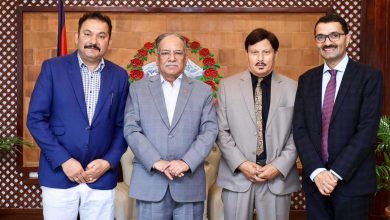
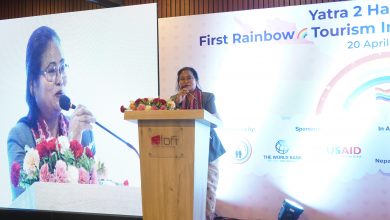
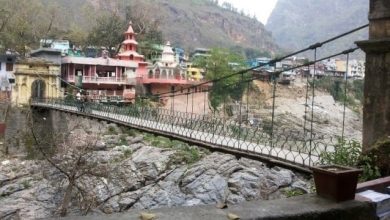
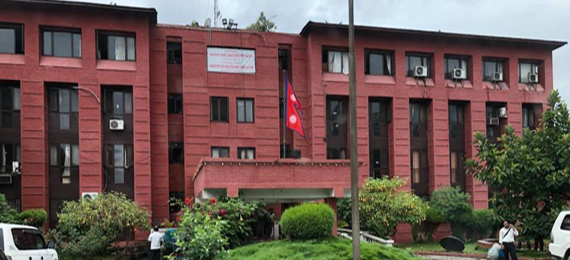
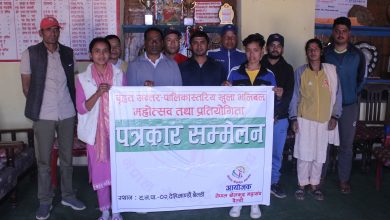
प्रतिक्रिया राख्नुहोस्